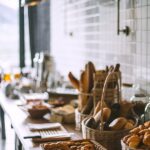Introduction
Depression is a pervasive and debilitating mental health condition affecting millions of people worldwide. The search for effective treatments has led to the exploration of novel approaches, and one such emerging therapy is the use of ketamine. While it has shown promise in treating depression, the financial aspects of undergoing ketamine therapy can be a significant concern for many patients. This article delves into the cost of ketamine treatment for depression, as well as an alternative solution in OCD treatment online, shedding light on the financial implications and their impact on patients’ mental health journey.
Ketamine for Depression: A Glimpse into its Efficacy
Ketamine, originally developed as an anesthetic, has gained attention for its rapid-acting antidepressant properties. Traditional antidepressants can take weeks to months to show noticeable effects, leaving patients to endure prolonged suffering. In contrast, ketamine often provides relief within hours, making it a promising choice for those with severe depression or suicidal ideation.
However, the administration of ketamine for depression isn’t without its hurdles. It is typically delivered through intravenous infusions or nasal sprays, requiring medical supervision and multiple sessions. This approach raises concerns about its accessibility and, most importantly, its cost.
The Cost of Ketamine Treatment for Depression
The cost of ketamine treatment for depression can vary significantly depending on several factors. These factors include the type of administration, the number of sessions, geographical location, and the healthcare provider’s fees. On average, a single ketamine infusion can cost anywhere from $400 to $800. A typical treatment plan may involve six infusions over two to three weeks, potentially resulting in a total cost of $2,400 to $4,800 for the treatment cycle.
For some individuals, these expenses can be a considerable financial burden, especially when insurance coverage is limited or unavailable. Most insurance providers are cautious about covering ketamine treatment due to its relatively recent introduction and ongoing research regarding its long-term effects and cost-effectiveness. This leaves many patients facing the daunting prospect of funding their depression treatment out-of-pocket.
Moreover, ketamine treatment may not always provide lasting relief. Maintenance sessions are often necessary to sustain the benefits, incurring additional costs. When accounting for potential long-term treatment, the financial implications can be even more burdensome.
Alternative: OCD Treatment Online
Amid the financial concerns surrounding ketamine therapy, it’s crucial to explore alternative options for individuals dealing with depression. One such alternative that is gaining traction is online therapy, including the treatment of conditions like Obsessive-Compulsive Disorder (OCD).
OCD Treatment Online: Accessibility and Affordability
Online therapy, also known as teletherapy or telehealth, has become increasingly popular, offering accessible and affordable mental health support. This approach leverages technology to connect individuals with licensed therapists and mental health professionals through video calls, chat, or phone sessions. For those grappling with depression, anxiety, or OCD, online therapy can be a lifeline.
Online OCD treatment offers several distinct advantages:
-
Affordability: Online therapy is often more budget-friendly compared to traditional in-person therapy. Most online platforms offer a range of subscription plans, allowing patients to choose the one that best fits their financial situation. Additionally, many insurance providers now cover telehealth services, further reducing the financial burden on patients.
-
Accessibility: Online therapy breaks down geographical barriers. Patients no longer need to worry about proximity to a therapist’s office. They can connect with a qualified mental health professional from the comfort of their homes, eliminating the need for transportation costs and time spent traveling.
-
Convenience: Online therapy offers greater flexibility, as it enables individuals to schedule sessions at times that suit their daily routines. This convenience can be a game-changer for those with busy schedules or mobility issues.
-
Anonymity: For those who may be hesitant to seek treatment due to stigma, online therapy provides a degree of anonymity that can make it easier to open up about their mental health concerns.
-
Evidence-Based Treatment: Many online therapy platforms offer evidence-based treatments, ensuring that patients receive quality care and support.
Conclusion
Depression is a relentless adversary, and finding the right treatment can be a long and challenging journey. While ketamine has emerged as a promising option for rapid relief, its cost can be a significant concern for many patients. The financial implications, coupled with limited insurance coverage, may leave some individuals with depression feeling hopeless.
In this context, the accessibility and affordability of online therapy, especially for conditions like OCD, offer a beacon of hope. Online therapy can bridge the gap, providing a cost-effective, convenient, and evidence-based alternative for those in need of mental health support.
The choice between ketamine treatment and online therapy ultimately depends on an individual’s unique circumstances, including their financial situation and treatment preferences. For some, the immediate relief offered by ketamine may outweigh the financial considerations. However, for others, online therapy represents a more practical and sustainable solution that can help manage ketamines for depression cost anxiety, and OCD effectively.
In the end, the quest for mental health support should be guided by both clinical efficacy and financial feasibility, ensuring that individuals receive the care they need without sacrificing their financial well-being.





